
Everyday English Speaking Course
If you had to talk to a doctor in English, would you know what to say? In today’s lesson you’ll learn phrases and vocabulary for talking about medical problems.
In order to be fluent and CONFIDENT in English, you have to be comfortable speaking English in many different situations in day-to-day life – and my Everyday English Speaking Course will teach you the phrases you need for these situations!
You’ll learn what to say in restaurants, while shopping, on the phone, while traveling, socializing, and much more. This is my most popular course because it’s so practical and useful – check it out by clicking on the link.
Let’s take a look at these phrases – first some phrases a doctor might say:
Phrases a doctor might say:
“We’ll need to run some tests.”
Tests are used to help diagnose (identify) the health problem. Some common tests are a blood test and a urine test. There are also scans such as an ultrasound (used for seeing internal organs; often used for pregnant women to see the baby) and X-rays (used for seeing the bones).
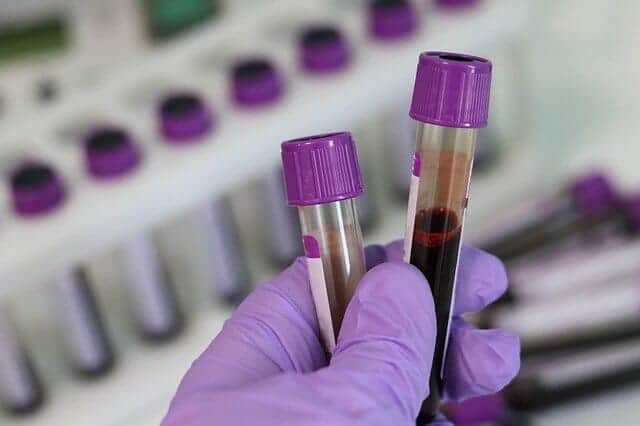
“The transplant was a success. There were no complications.”
A transplant is when one person (the donor) gives an organ to another person (the recipient). Some transplants, such as a kidney transplant, can be done when the donor is still alive. Others, such as heart and lung transplants, are done when the donor has recently died. When the donation is of blood, it is called a transfusion.
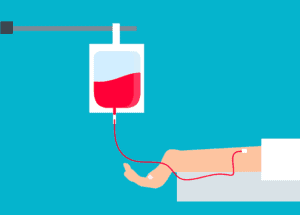
If there are complications during surgery, it means that things went wrong or unexpected things happened to make it more difficult. After a transplant, the recipient usually needs to take anti-rejection medication so that their body doesn’t reject the transplanted organ.
“I’d like to keep you here overnight for observation.”
The doctor will say this if it’s necessary for you to stay in the hospital for a little while, so that the doctors and nurses can observe you and make sure you are OK. They might use a machine to monitor your vital signs – observe the rhythm of your heartbeat and breathing. (Learn about breathe vs. breath)
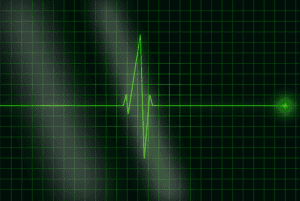
“We haven’t made a diagnosis yet, but we’ve ruled out cancer.”
A diagnosis is the identification of the specific health problem. To rule out something means to eliminate it from consideration.
“Does it hurt when I press here?”
If you have pain in your body, the doctor might press (apply pressure) on different places and ask you if you feel any pain at that particular point.
“I’m going to prescribe you some antibiotics.”
Some medication requires a doctor’s prescription (official note with permission) for you to get it. Antibiotics are used to treat infections.

“Do you have any allergies?”
If you have allergies, it means your body reacts badly to particular foods or medicines. You can respond to this question by saying “I’m allergic to…”
Phrases a patient might say:
“I have a rash on my arm, and it’s very itchy.”
A rash is a red, irritated area on the surface of your skin. If it’s itchy, it means you feel an annoying sensation that makes you want to scratch it with your nails.
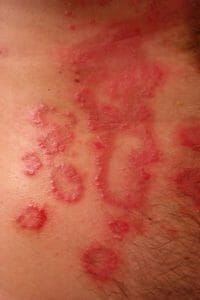
“I feel a sharp pain when I bend my knee.”
A sharp pain is a strong, sudden pain. The opposite is a dull pain – a feeling that is weaker and more continuous.
“My stomach hurts and I’ve lost my appetite.”
To describe the pain you’re feeling, you can say “My + [body part] hurts.” If you’ve lost your appetite, it means you have no desire to eat.
“My neck is stiff and sore. I think I’ve pulled a muscle.”
If a body part is stiff, it means that it has less ability to move than normal. The word sore means that it’s continuously painful, usually when you’ve used a muscle too much. We usually use “sore” for muscles and for a sore throat. To pull a muscle means to extend a muscle beyond the normal point, and injure it.

“What are my options for treatment?”
The word treatment refers to the methods for helping you get better from a health problem. Some diseases can be cured (completely eliminated from your body), and others cannot be cured, but their symptoms (signs and effects of the disease) can be treated (made better or more tolerable).
“Am I going to need surgery?”
Surgery is when a doctor (called a surgeon) cuts open your body to make repairs on your insides. Surgery can also be called an operation. The verbs for the doctor doing this action are to operate or to perform surgery. We usually say that the patient has/had an operation or has/had surgery.
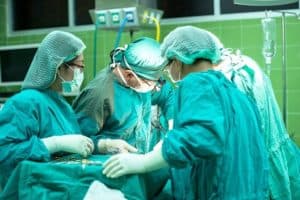
“I’d like to get a second opinion.”
A second opinion is when you talk to a different doctor to see if he has a different opinion about your health problem or treatment options.
“That’s a relief!”
You can say this when the doctor gives you some good news! A relief is something that makes you happy after you were worried about it.

Now you’re a bit better-equipped to talk to a doctor in English if you ever need to someday – but there’s a lot more to learn when it comes to speaking English in everyday life!
Make sure to join my Everyday English Speaking Course to learn exactly what to say in lots of different situations.
Learn more:











